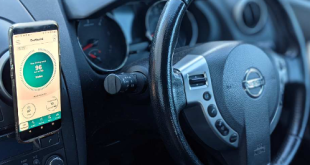Unveiling the Mysteries: How Does Car Insurance Work?
Car Insurance Work, Navigating the world of car insurance can feel like steering through a maze without a map. From deciphering coverage options to understanding premiums and deductibles, it’s easy to get lost in the jargon. But fear not! This guide is your compass, shedding light on the intricate workings of car insurance. So buckle up and let’s dive into the details of how car insurance works.
5 Vital Reasons Why You Absolutely Need Car Insurance
Decoding Car Insurance Basics
At its core, car insurance provides financial protection against the risks associated with owning and operating a vehicle. But how does it actually work? Simply put, when you purchase car insurance, you enter into a contract with an insurance company. In exchange for regular premium payments, the insurer agrees to provide coverage for specified events, such as accidents, theft, or damage.
Understanding Coverage Types
One of the fundamental aspects of car insurance is understanding the different types of coverage available. How does car insurance work? Well, it typically consists of several components, including:
- Liability Coverage: This type of coverage pays for damages and injuries you cause to others in an accident.
- Collision Coverage: It covers the cost of repairing or replacing your vehicle if it’s damaged in a collision.
- Comprehensive Coverage: This provides protection against non-collision incidents, such as theft, vandalism, or natural disasters.
- Personal Injury Protection (PIP): PIP covers medical expenses and lost wages for you and your passengers, regardless of fault.
- Uninsured/Underinsured Motorist Coverage: It steps in to cover your expenses if you’re involved in an accident with a driver who has insufficient or no insurance.
Premiums and Deductibles
When discussing how car insurance works, premiums and deductibles are key terms to understand. Your premium is the amount you pay for insurance coverage, typically on a monthly or annual basis. The cost of your premium is determined by various factors, including your age, driving record, vehicle type, and coverage limits.
Deductibles, on the other hand, represent the amount you’re responsible for paying out of pocket before your insurance kicks in to cover a claim. Generally, choosing a higher deductible will lower your premium, but it also means you’ll have to pay more in the event of an accident.
The Claims Process Demystified
Accidents happen, and when they do, navigating the claims process can be overwhelming. So, how does car insurance work when it comes to filing a claim? Let’s break it down:
- Report the Incident: As soon as possible after an accident or incident, contact your insurance company to report the details. Be prepared to provide information such as the date, time, location, and parties involved.
- Assessment and Documentation: An insurance adjuster will assess the damage to your vehicle and determine the extent of coverage. It’s essential to document the incident thoroughly by taking photos and gathering witness statements if possible.
- Claims Settlement: Once the claim is processed and approved, the insurance company will provide compensation according to the terms of your policy. This may involve repairing or replacing your vehicle, covering medical expenses, or reimbursing for property damage.
FAQs: Addressing Common Concerns
Is car insurance mandatory?
Yes, in most states, car insurance is required by law. However, the specific requirements may vary, so it’s essential to familiarize yourself with the regulations in your area.
Can I cancel my car insurance at any time?
While you can typically cancel your car insurance at any time, it’s essential to consider the consequences, such as potential penalties or lapses in coverage. It’s advisable to have a new policy in place before canceling your existing coverage.
How does my driving record affect my insurance rates?
Your driving record plays a significant role in determining your insurance premiums. A history of accidents or traffic violations may result in higher rates, as insurers perceive you as a higher risk.
What factors affect the cost of car insurance?
Several factors can influence the cost of car insurance, including your age, driving history, location, type of vehicle, coverage limits, and deductibles.
Do I need additional coverage for rental cars?
If you frequently rent cars, it’s worth considering additional coverage options, as your existing policy may not provide sufficient protection for rental vehicles. Check with your insurance provider to explore your options.
How can I lower my car insurance premiums?
There are several strategies you can employ to lower your car insurance premiums, such as maintaining a clean driving record, bundling policies, increasing deductibles, and taking advantage of discounts offered by insurers.
Conclusion
Understanding how car insurance works is crucial for protecting yourself and your assets on the road. By familiarizing yourself with the basics of coverage, premiums, and claims processes, you can make informed decisions and ensure you have the right level of protection for your needs. So, the next time you hit the road, drive with confidence, knowing you’re covered every step of the way.



